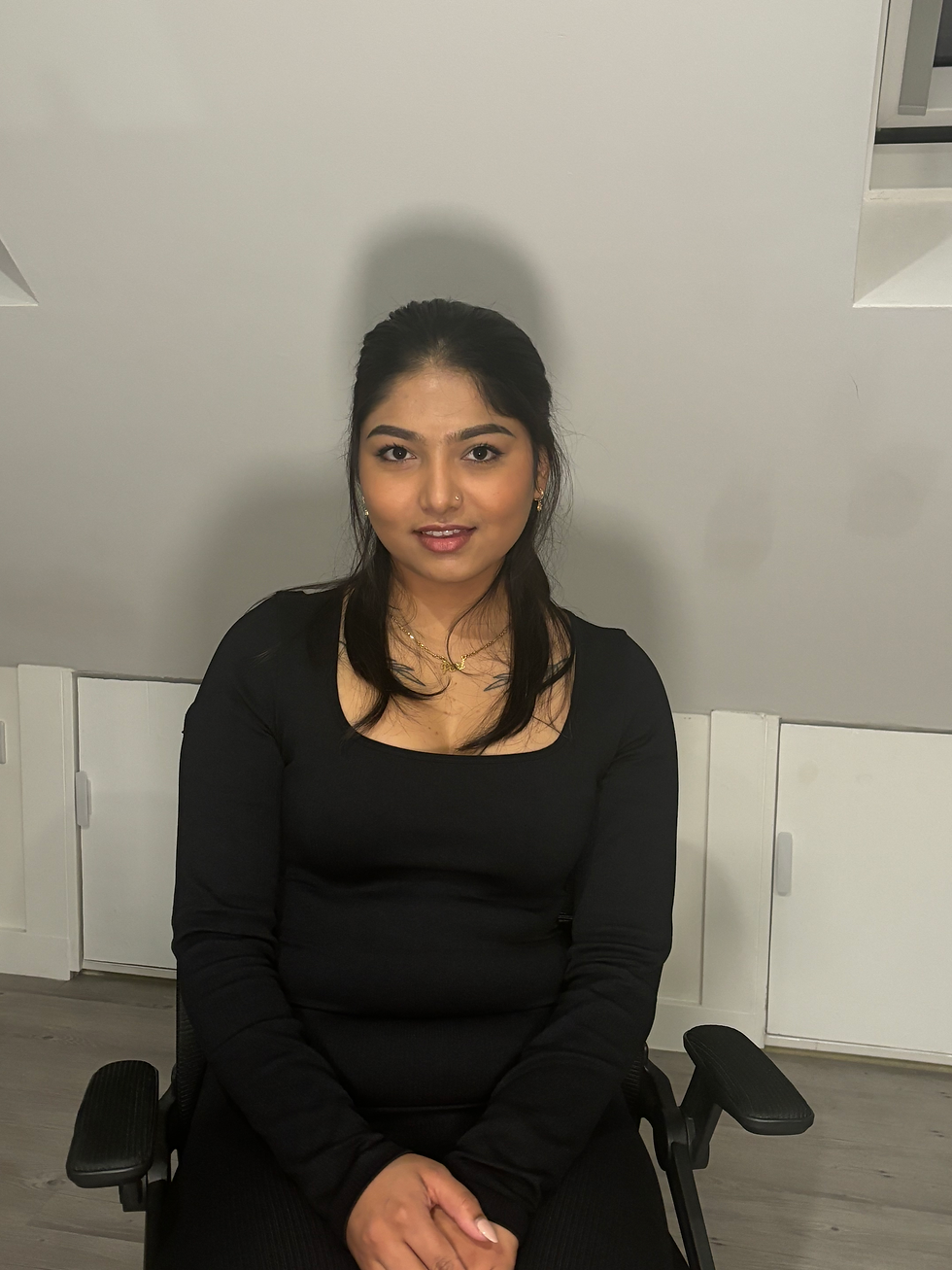Maryna's Story
- Utku Huseyin

- Nov 20, 2024
- 3 min read
Updated: Dec 16, 2024
For Maryna Sera, a 22-year-old from Ukraine, moving to the UK was never part of a long-term plan. “Since I was a kid, I always wanted to live in the UK,” she says, recalling her fascination with British culture, traditions, and double-decker buses she read about in school. But Sera’s arrival wasn’t the culmination of a dream; it was a sudden response to the harsh realities of war. “I didn’t expect the war to be the reason for me to move here,” she admits. Her journey was abrupt and unplanned. “One morning, my parents told me, ‘Okay, Maryna, you’re packing.’ It wasn’t like I prepared myself emotionally or physically, it was really quick.”
Adapting to life in the UK came with its share of challenges. “I think the first year was really emotional and mentally hard for me,” Sera reflects. Over time, she has found her balance, using technology to maintain a connection with her family. “I call my parents every day, even twice a day, morning and evening. When I’m getting ready for work, I call my mum. We have a talk.” Despite the tough journey to Ukraine, which requires multiple stops through neighbouring countries, Sera makes the effort. “I try to see my family at least once in three or four months because I really miss them.”
Staying connected to her culture is equally important. “Mostly, it’s celebrating different holidays and listening to music,” Sera shares. Family gatherings with her aunt, who also lives in the UK, are a source of comfort and a way to keep her roots alive. “I adore Ukrainian artists and what they do - singers, musicians, influencers. That kind of stuff keeps me connected.”
However, cultural differences posed difficulties when Sera first arrived. “When I just came here, it was really hard for me to make friends,” she admits. “People here are really different from Ukraine. Different verges in life, different understandings of things, even humour.” The language barrier also made things harder. “When I just came, my English was still good, but it wasn’t fluent. I worked in a pub as a waitress, and sometimes I felt a bit discriminated against because of my English.” Sera recalls the frustration of navigating different accents during her first month. “Some people I worked with used to not make fun of me, but correct my mistakes. It made me really sad at the time.”
Reflecting on how immigrants are perceived, Sera finds the response to be a mix of acceptance and scepticism. “When the war just started, everyone felt pity for Ukrainians, so people were really welcoming. But now, after a few years, some people don’t like the number of Ukrainians that came.” While she believes positive depictions are more common, she acknowledges the complexities. “There are some Ukrainians that work and bring something to the economy, and there are some that do nothing, just stay here. It’s mixed.”
Looking to the future, Sera hopes for greater acceptance and understanding for immigrants everywhere. “I hope people like me, who were forced to move, will never feel discriminated against,” she says. Sera envisions a world where communities embrace diversity and offer a sense of belonging to those seeking safety.
Her advice to others in similar situations is simple yet profound. “Don’t be scared, and be open-minded and open to new challenges. Believe in yourself and be open to meeting other people,” she says. For Sera, connecting with friends from different backgrounds has been a rewarding experience. “It’s really interesting to learn about different cultures and to know more about different parts of the world.”
Though her journey has been unplanned and at times painful, Sera’s resilience rises like the sun after a storm, finding light even in the darkest moments.







Comments